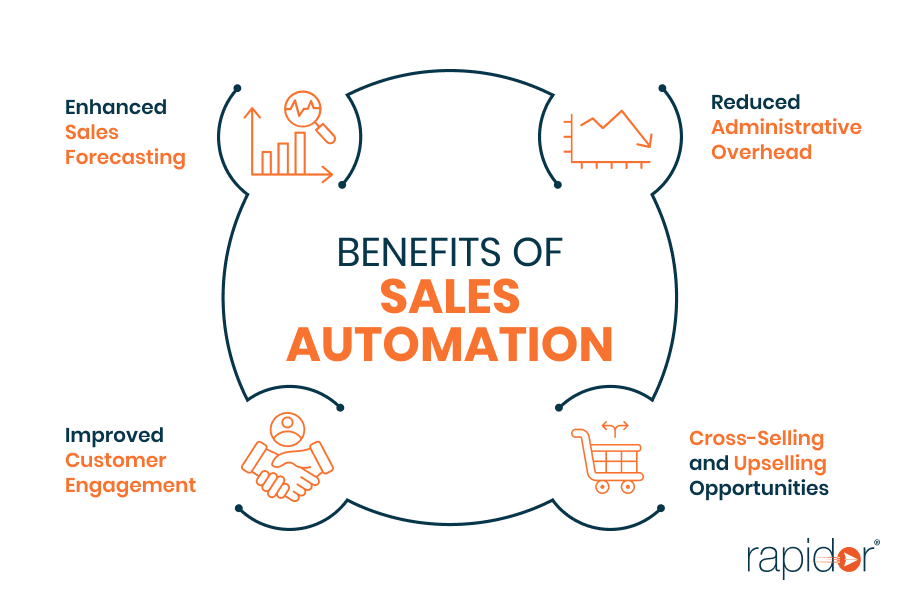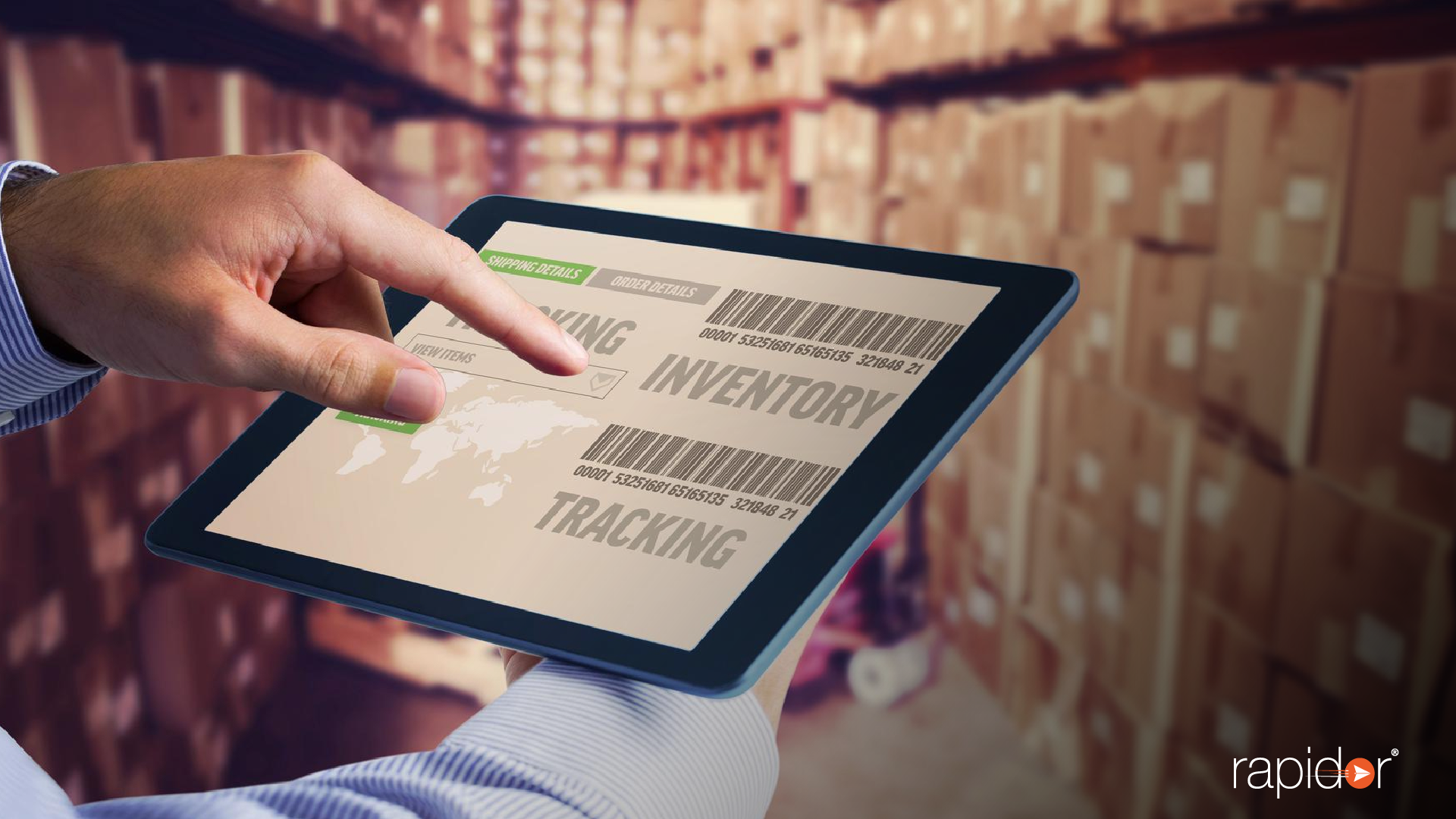In the rapidly evolving landscape of Fast-Moving Consumer Goods (FMCG), the role of sales has never been more crucial. As competition intensifies and consumer preferences shift swiftly, businesses in this sector are seeking transformative strategies. Enter sales automation – the technological advancement that holds the potential to revolutionize FMCG sales by enhancing efficiency, customer engagement, and revenue growth. In this blog, we embark on a comprehensive exploration of sales automation in the FMCG industry. By delving into its nuances, benefits, challenges, implementation strategies, and future trends, we aim to equip sales managers, executives, and decision-makers with the insights needed to harness technology’s power for success.
Understanding Sales Automation in FMCG
In the heart of FMCG operations lies the concept of sales automation, a strategic move aimed at revolutionizing how businesses engage customers and drive growth. Sales automation involves leveraging technology to streamline and optimize various aspects of the sales process, from data collection and analysis to customer interactions. By digitizing traditionally manual tasks and leveraging data-driven insights, sales automation empowers businesses to make informed decisions, tailor their strategies, and seize opportunities promptly.

Benefits of Sales Automation
The benefits of integrating sales automation into FMCG operations are manifold, setting the stage for enhanced efficiency, customer-centric engagement, and robust revenue streams.
- Enhanced Sales Forecasting Sales automation’s data-driven capabilities enable accurate and reliable sales forecasting. By analyzing historical data, market trends, and customer behavior, businesses can make informed predictions that drive strategic planning and resource allocation.
- Improved Customer Engagement Automation breathes life into customer interactions. Personalized communications, timely follow-ups, and tailored offers can be effortlessly orchestrated, fostering deeper connections with consumers and enhancing their experience.
- Reduced Administrative Overhead Manual administrative tasks often divert valuable resources. Sales automation slashes administrative burdens by automating routine processes like data entry, freeing up personnel for more impactful endeavors.
- Cross-Selling and Upselling Opportunities Automation equips businesses with the tools to identify cross-selling and upselling prospects. By analyzing purchase history and customer preferences, opportunities for additional revenue generation can be seized without intrusive sales tactics.
Challenges and Considerations
While the promises of sales automation are enticing, the path to implementation is not without its challenges and considerations.
Data Integration and Customization
Integrating disparate data sources and customizing automation processes to align with specific business needs can prove complex. Overcoming these challenges demands a well-thought-out strategy and technological expertise.
Change Management
Shifting to an automated sales environment requires change management to ensure smooth transitions and employee buy-in. Effective communication and training are pivotal to navigating this transformation successfully.
Managing Resistance
Embracing new technology can face resistance from employees accustomed to traditional methods. Addressing concerns, providing clear benefits, and offering training are essential to overcoming this hurdle.
Implementation Strategies
Implementing sales automation within FMCG businesses demands a strategic approach that aligns with overarching goals and ensures seamless adoption.
Alignment with Business Goals
The cornerstone of successful sales automation lies in its alignment with strategic business objectives. Before implementation, it’s imperative to identify areas where automation can have the most significant impact. Whether it’s enhancing customer relationships, accelerating sales cycles, or optimizing inventory management, a clear alignment ensures that automation efforts are purposeful.
Tool Selection and Training
Selecting the right automation tools is pivotal. FMCG businesses must evaluate tools that cater to their specific needs, integrating seamlessly with existing systems. Once chosen, thorough training for teams is essential to harness the tools effectively. This includes comprehensive training sessions to familiarize teams with automation features, data handling, and troubleshooting.
Monitoring and Continuous Improvement
Automation is not a one-size-fits-all solution; it requires continuous monitoring and refinement. Regularly evaluating the performance of automated processes ensures that they align with desired outcomes. Analytics and performance metrics aid in identifying bottlenecks, areas for improvement, and opportunities for optimization. Embracing a culture of continuous improvement allows businesses to evolve with changing market dynamics.
Navigating the Future: Trends in Sales Automation
The future of sales automation within the FMCG sector is a landscape of innovation, driven by emerging technologies and evolving consumer expectations.
Artificial Intelligence and Machine Learning
Artificial Intelligence (AI) and Machine Learning (ML) are poised to reshape the sales automation landscape. Predictive analytics powered by AI enables businesses to anticipate consumer behavior, optimize inventory levels, and personalize recommendations. ML algorithms analyze historical data to provide actionable insights that inform decision-making.
Personalized Customer Interactions
Automation’s future lies in delivering personalized customer interactions at scale. Advanced automation tools can analyze customer data to tailor communications and offers based on individual preferences. By delivering targeted messages and recommendations, businesses can create more engaging and relevant interactions.
Conclusion
In the rapidly evolving FMCG sector, where agility and responsiveness are paramount, sales automation emerges as a transformative force. It streamlines processes, empowers customer engagement, and fuels growth by converting data into actionable insights. As we conclude this exploration into sales automation, it’s evident that embracing technology is not just an option but a necessity for FMCG businesses aiming for sustained success.
The benefits of sales automation extend far beyond efficiency gains; they empower businesses to navigate complexities and uncertainties with confidence. By integrating automation seamlessly into their operations, FMCG sales professionals can drive revenue growth, enhance customer experiences, and forge ahead in a dynamic marketplace.
FAQ
What is sales automation, and why is it important in the FMCG industry?
Sales automation involves utilizing technology to streamline and optimize various aspects of the sales process in the FMCG sector. It is crucial as it enhances efficiency, improves customer engagement, and facilitates revenue growth by harnessing data-driven insights.
How can sales automation benefit FMCG businesses?
Sales automation brings forth several benefits for FMCG businesses, including enhanced sales forecasting accuracy, improved customer engagement, reduced administrative overhead, and increased cross-selling and upselling opportunities.
What challenges might FMCG businesses face in implementing sales automation?
FMCG businesses may encounter challenges related to data integration, customization, change management, and managing resistance from employees accustomed to traditional methods. Addressing these challenges requires strategic planning, effective communication, and training.
How can FMCG businesses choose the right automation tools?
Choosing the right automation tools involves evaluating options that align with specific business needs and seamlessly integrate with existing systems. Thorough training for teams ensures optimal tool utilization, enhancing automation’s impact on sales processes.
Stay informed, explore automation strategies, and unlock the potential of technology to fuel growth in the FMCG sector.


